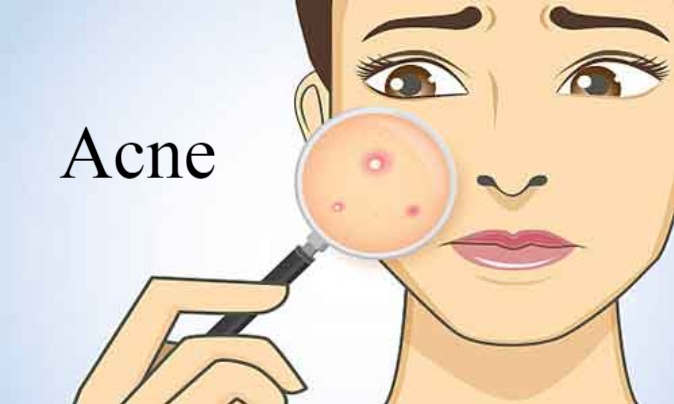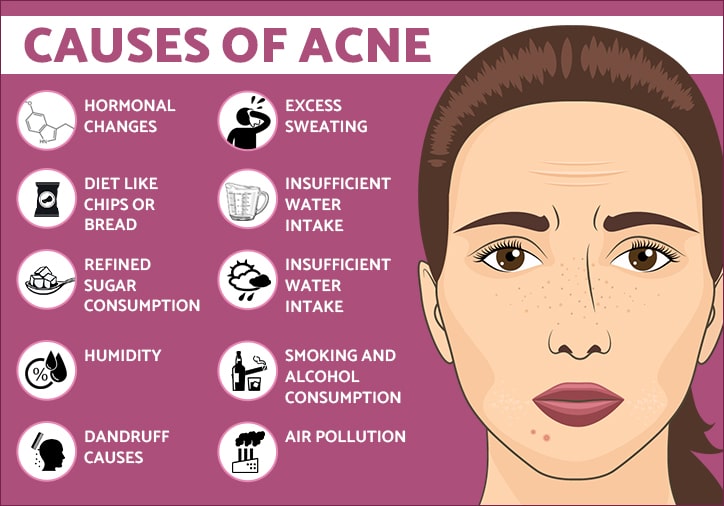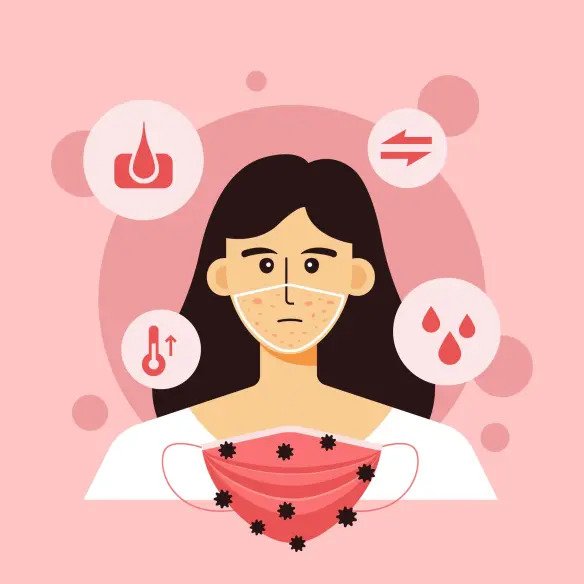What are the different ways to treat Acne?
What is Acne?
Acne is a common skin condition in which the pores of your skin become blocked by dead skin cells, sebum (an oily substance), hair and bacteria. There are many types of pimples caused by these blockages, including blackheads, whiteheads, nodules, and cysts. You are not alone if you suffer from acne.

The most common skin condition that people experience is eczema. About 80% of people between 11 and 30 will experience at least a mild form of acne, and most people will experience it at some point.
Even though acne doesn’t pose a serious threat to your health, it can still be painful, especially if you have severe acne. Scarring may also occur over time as a result of acne.
Aside from acne’s physical effects, emotional distress can also result from acne. You may experience feelings of anxiety or depression when you have acne on your face or another visible part of your body and acne scars can contribute to these feelings.
Cause of Acne

Pimples:
Under the skin of humans are oil glands, which are connected to pores. Glands are connected to pored through follicles(small sacks that produces and consist of liquid). These liquids are oilly in nature called sebum. These liquids are responsible to carry dead cells to the surface of skin through follicile.
Pimples are generally formed when folliciles are blocked and oil gets buildup under the skin. These serum, skin cells, and hair, together form into a plug which could be infected by bacteria which result in swelling. These plugs break down causing pimples formation.
Hormonal Factors:
Rise in androgen level is though ot be the main reason behind acne followed by range of other factors. When adolescence begins, the hormonal level of Androgen begins rising. This elevation causes glow in oil glands under the skin. The enlarged produces sebum which when get excess could cause several pores in the skin. This cause bacterias to grow in them.
Other triggering factors:
- some medications that contain androgen and lithium
- greasy cosmetics
- hormonal changes
- emotional stress
- menstruation
As per several studies, genetic factors might also increase th risk of acne.
Ways to treat acne:

- Wash twice a day and after sweating. It is imperative to wash your skin as soon as possible after sweating, especially if you are wearing a hat or helmet.
- Use your fingertips to apply a soothing, non-abrasive cleanser. Anything else you choose can irritate your skin, such as a washcloth or mesh sponge.
- Be gentle with your skin. Use gentle products, such as those that are alcohol-free. Use products that are not irritants for your skin, such as astringents, toners, and exfoliants. It makes acne appear darker when the skin is dry and red.
- Scrubbing your skin can make acne worse. Avoid the temptation to scrub your skin.
- Rinse with lukewarm water
- Shampoo regularly. If you have oily hair, shampoo daily.
- Let your skin heal naturally. Your skin will take longer to clear if you pick, pop, or squeeze your acne, and you will have an increased risk of acne scarring.
- Keep your hands off your face. Touching your skin throughout the day can cause flare-ups.
- Stay out of the sun and tanning beds. Tanning damages your skin. Furthermore, some acne medications can make your skin very sensitive to ultraviolet (UV) light, which is emitted by both the sun and indoor tanning lamps. Using tanning beds increases your risk for melanoma, the deadliest form of skin cancer, by 75%.
- Consult a dermatologist if:
- Feel embarrassed or shy because of your acne.
- You haven’t found a product that works for you.
- Scars or darkening of your skin are caused by acne.
REFERENCES:
- https://www.mayoclinic.org/diseases-conditions/acne/symptoms-causes/syc-20368047
- https://my.clevelandclinic.org/health/diseases/12233-acne
- https://www.aad.org/public/diseases/acne/skin-care/tips
- https://www.healthline.com/health/skin/acne
- https://www.niams.nih.gov/health-topics/acne
- https://www.webmd.com/skin-problems-and-treatments/acne/ss/slideshow-acne-dictionary
- https://www.medicalnewstoday.com/articles/107146
For more details, kindly visit below.
Search this blog by following keywords also acne treatment | acne medication | skin acne | acne symptoms | acne problems | acne vs pimples | acne scars.